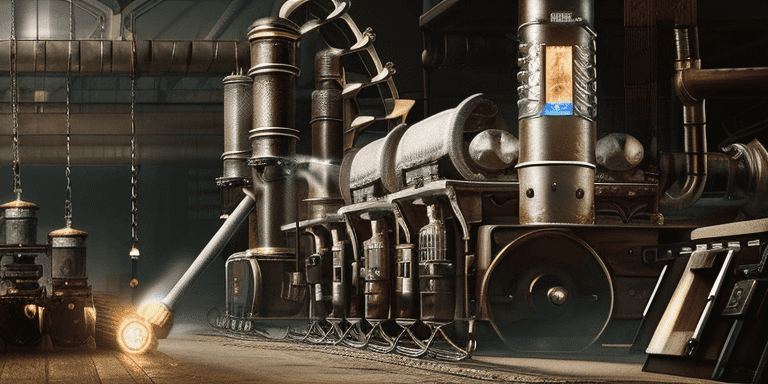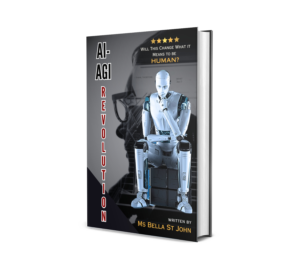(AI) Artificial Intelligence Revolution
Why this isn’t simply the next ‘Industrial Revolution’

The Industrial Revolution and the introduction of steam power marked a significant turning point in human history, transforming the way we work, live, and interact with the world around us. However, the (AI) artificial intelligence revolution is fundamentally different from the industrial revolution and the introduction of steam power.
At its core, the Industrial Revolution was a period of great innovation, marked by the widespread adoption of new technologies, including steam power, that enabled faster and more efficient production of goods, and faster and more efficient transportation of those goods. This led to a significant increase in productivity and economic growth, but it also brought about significant social and environmental changes, such as the rise of urbanization and the degradation of natural resources.
Regardless of the speed and impact of change, the steam-powered industrial revolution was still driven, managed, and controlled by people. If there were machines to automate operations, there first needed to be people to program those machines.
The (AI) artificial intelligence revolution represents a fundamental shift
in the way we interact with technology and the world around us. AI technologies have the potential to revolutionize everything from healthcare to transportation, and they are already beginning to transform the way we work and live – and increasingly AI artificial intelligence is moving closer to a point where human involvement will be considered optional, not essential.
Another significant differences between the Industrial Revolution and the AI artificial intelligence revolution is the speed at which change is occurring. While the Industrial Revolution unfolded over several decades, the AI revolution is happening much more quickly. Advances in machine learning and other AI technologies are occurring at an exponential rate, and it is likely that the pace of change will only accelerate in the coming years.
However, with this rapid pace of change comes significant risks and challenges.
One of the most pressing concerns related to the (AI) artificial intelligence revolution is the danger posed by the “intelligence” part of artificial intelligence.
While AI systems can be incredibly powerful and effective, they can also be unpredictable, difficult to control, and confidently make stuff up! There are also have concerns regarding safety and security.
Elon Musk, Steve Wozniak and over 1,000 other influential people in the field have already signed an open letter requesting a pause on the development of AI (we touch on that later).
Italy has gone so far as to ban, at least temporarily, the AI application, ChatGPT, following a security breach where “it was possible for some users to see another active user’s first and last name, email address, payment address, the last four digits (only) of a credit card number, and credit card expiration date,” according to an OpenAI spokesman.
Even the tone of the response by OpenAI seemed to be one of suggesting people were overreacting because “Full credit card numbers were not exposed at any time,” and that they patched the breach as soon as it was discovered (nine hours after the breach occurred).
The rapid pace of change and the potential risks associated with the “intelligence” part of artificial intelligence require us to approach this technological revolution with caution and responsibility, and to ensure that the development and use of these technologies are aligned with the needs and values of society.
This is not simply the next industrial revolution – far from it.
[This is an excerpt from “AI-AGI Revolution: Will This Change What It Means To Be HUMAN?” book written by Ms Bella St John https://amzn.to/43FDJw8]